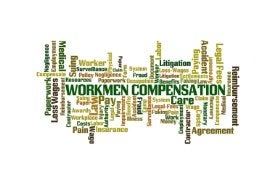-
Answering FAQs About Wage Claims
 Employees often refrain from making wage claims near San Jose for fear that it might jeopardize the relationship they have with their employers. However, employment laws clearly outline workers’ rights afforded to eligible employees. Should they not advocate on their own behalf for the rights due to them, they may be deprived of considerable income over the course of their working careers. If you have questions about legitimate wage claims, the following answers can help you better understand your rights.
Employees often refrain from making wage claims near San Jose for fear that it might jeopardize the relationship they have with their employers. However, employment laws clearly outline workers’ rights afforded to eligible employees. Should they not advocate on their own behalf for the rights due to them, they may be deprived of considerable income over the course of their working careers. If you have questions about legitimate wage claims, the following answers can help you better understand your rights.1. What happens to unused vacation time if you leave a job?
Perhaps you are moving on to a new career opportunity. As you reconcile the final details of your current job, you realize that you have unused vacation hours. In such a case, your soon-to-be former employer must pay you for those vacation hours. Earned vacation time demands payment the same as the hours you worked in a regular day. Should your employer refuse to pay out your vacation time, you may want to speak with an employment lawyer to see if you should file a wage claim .
2. How many breaks should you get during each workday?
Wage claims may also be warranted if you must work through your mandated break periods. First, you must determine if you are a non-exempt employee. If you have this employment status, next consider the number of hours you work each day. Many employers expect their employees to be at work for at least eight hours. If this requirement applies to your work situation, you should receive a half-hour lunch break. After a four-hour period, you are likewise entitled to a 10-minute break that must be given again after four more consecutive hours.
3. Why should you hire an employment lawyer for your wage claims?
Labor laws are in place to protect your rights as a worker, but these can be difficult to understand without the necessary legal training. If you suspect that you have a wage claim because of wages not received from earned vacation time, missed break periods, or overtime hours, talk with a labor lawyer. Especially if you fear that you may be wrongfully terminated for your wage claim, an attorney who is knowledgeable in employment law can offer you the best possible legal outcome.
-
A Guide to Your Rights as a Minimum Wage Worker
The Fair Labor Standards Act governs employment law in San Jose through federal minimum wage provisions. As of July 24, 2009, the federal minimum wage is $7.25 per hour. However, many states have their own minimum wage laws, with some states providing greater employee protections.
 1. Covered Employees
1. Covered Employees The Fair Labor Standards Act establishes minimum wage, overtime pay, and child labor standards throughout the country. While states can implement a higher minimum wage, they must also comply with the federal minimum wage standards. The employment law provisions of the FLSA apply to businesses with employees who participate in interstate commerce, produce goods for interstate commerce, or work with goods that have been moved in or produced in the stream of interstate commerce. However, the Act does not regulate hospitals, institutions engaged in the care of sick, schools, or institutions of higher education. As a result, these types of employees must file their wage claims under other legal remedies.
2. Basic Provisions
The Act requires covered employers to compensate their employees a minimum wage of $7.25. Additionally, employers cannot pay workers under the age of 20 less than $4.25 an hour during the first 90 consecutive calendar days of employment. It is also illegal for an employee to displace a separate employee to hire a youth worker. Even though employers may pay on a piece-rate basis, employees can file hour claims if they don’t receive the equivalent of the required minimum hourly wage rate and overtime. While the Act does not limit the number of overtime hours an employee can work, it does require employers to compensate employees at least one and one-half times their regular pay rate for overtime pay.
3. Penalties and Sanctions
An employee can speak with an employment attorney about FSLA violations, but the Department of Labor also uses a variety of remedies to enforce compliance with the Act. If the Wage and Hour Division Investigators notice violations, they will recommend changes in employment practices so that the employer is in compliance with the Act. They will also require employers to pay employees for any back due payments.
-
Employee Misclassification: Are You a Victim?
In 2011, Levi Strauss made national news when the company agreed to pay more than one million dollars in back wages to employees it misclassified as exempt from overtime pay. Unfortunately for a non-exempt employee in San Jose , many companies struggle with the definition of exempt and non-exempt employees. While the rules governing this type of employment law are complex, the practical implications of these classifications are rather straightforward.
 1. Tests for classification
1. Tests for classification The Federal Labor Standards Act outlines three tests for classifying an exempt employee and a non-exempt employee. In most cases, the employee must satisfy all three tests to meet the definition of exempt. First, an employee is considered exempt if he or she earns more than $100,000 per year. Employees earning less than $23,600 per year are classified as non-exempt. The second requirement is the salary basis test, which classifies employees as salaried if they receive a guaranteed minimum amount of money for weekly work. The final test is the duties test, which looks at the actual job tasks and how the position fits into the employer’s overall operations.
2. Reclassification of employees
Identifying misclassified employees is just the first step in solving this employment law issue. The employer needs to calculate a new hourly wage rate and compensate the employees for any overtime wages owed. If the employee salaries were already quite high, it may be difficult to convert those to an hourly rate that isn’t considerably higher than competitive market rate. In this type of situation, it may be useful to meet with an employment attorney about reclassifying employees and providing compensation for back wages.
3. Management training
Employers may need to meet with an employment attorney to calculate the amount due to each misclassified employee and benchmark a competitive new hourly rate. This ensures that the affected employees don’t earn any less than they did with their exempt statuses. Next, employers should train managers on workplace rights for hourly employees and how to educate their employees on rights regarding overtime wages. An attorney can help the employer reach a settlement for back pay with the affected employees.
-
What Deductions Can Your Employer Make from Your Salary?
Unlike a non-exempt employee, an exempt employee works for a salary. This means that an employer pays an exempt employee the same amount every week. Even though employers can make deductions from the salary of an exempt employee in San Jose, these deductions are limited to very specific circumstances.
In this video, an employment attorney outlines the reasons why an employer may be able to deduct an exempt employee’s salary. For example, if an exempt employee has exhausted or has not accrued enough sick leave, then the employer does not need to pay for a full day taken off of work. However, the key to this deduction is that the exempt employee must take the entire day off of work. An employer may also suspend an exempt employee without pay if the employee commits a serious violation, such as disregarding a major safety rule or instigating sexual harassment.
-
What to Do If You Were Fired Without Cause?
If you are the victim of wrongful termination near San Jose, you need to meet with an employment attorney to determine whether or not your employer was able to terminate you without cause. California is an “at-will” employment state, but this generalization does not apply in every employment situation. If you and your employer agreed that you would work for a certain period of time, employment law typically requires your employer to provide cause for termination.
 Government employees as well as employees in a union also require cause for termination, even if they are at-will employees. In addition, termination due to sexual harassment or whistleblower retaliation is also exceptions to the “at-will” employment law doctrine. An employee may also file a wrongful termination claim if his or her termination was retaliation for requesting overtime pay. The best way for a terminated employee to assess the validity of his or her wrongful termination claim is by meeting with an employment lawyer. The employment attorney can determine whether the circumstances surrounding the termination fall into one of these “at-will” employment exceptions.
Government employees as well as employees in a union also require cause for termination, even if they are at-will employees. In addition, termination due to sexual harassment or whistleblower retaliation is also exceptions to the “at-will” employment law doctrine. An employee may also file a wrongful termination claim if his or her termination was retaliation for requesting overtime pay. The best way for a terminated employee to assess the validity of his or her wrongful termination claim is by meeting with an employment lawyer. The employment attorney can determine whether the circumstances surrounding the termination fall into one of these “at-will” employment exceptions. -
A Look at Employment Discrimination Laws
 Employees and prospective employees are protected from discriminatory actions taken by employers and co-workers. These protections are guaranteed by state laws such as California’s Fair Employment and Housing Act, and federal laws such as the Federal Civil Rights Act of 1991. Any employee has the right to consult an employment lawyer if he or she feels that a discriminatory action has taken place. A labor law attorney near San Jose can help you understand the applicable laws, investigate your case, and provide guidance with regard to your legal options.
Employees and prospective employees are protected from discriminatory actions taken by employers and co-workers. These protections are guaranteed by state laws such as California’s Fair Employment and Housing Act, and federal laws such as the Federal Civil Rights Act of 1991. Any employee has the right to consult an employment lawyer if he or she feels that a discriminatory action has taken place. A labor law attorney near San Jose can help you understand the applicable laws, investigate your case, and provide guidance with regard to your legal options. 1. Basis for Discrimination
The U.S. Equal Employment Opportunity Commission (EEOC) enforces employment law, which prohibits discrimination on the basis of a wide range of characteristics. For instance, it is prohibited for an employer to discriminate against an employee on the basis of age, disability, or national origin. Likewise, discrimination on the basis of genetic information, race, color, religion, sex, and pregnancy is also illegal. If you’re unsure of whether a behavior you’ve experienced falls into one of these categories, consult your employment lawyer.2. Equal Pay for Equal Work
Another aspect of employment discrimination laws involves equal pay for equal work . Under the Equal Pay Act, men and women who work within the same company and carry out equal work must receive equal pay. Equal pay involves salary, bonuses, stock options, overtime pay, life insurance, travel reimbursement, and all other forms of financial compensation. Equal work is not necessarily defined by a person’s job title, but rather by the job responsibilities. For example, if Joan is a secretary to an executive at a company and John is an executive assistant at the same company, and both individuals carry out substantially similar job responsibilities, then it would be a violation of the Equal Pay Act for Joan to receive less compensation than John.3. Retaliatory Actions for Claims
Under employment law, it is illegal for an employer to take retaliatory action against an employee who has filed a claim of discrimination or has reported discrimination. Some examples of illegal acts of retaliation include wrongful termination, demotions, harassment, and refusal to promote. -
Putting an End to Sexual Harassment at Work
Employment law on both the state and federal level protects workers from sexual harassment on the job. Although many workers fear retaliation from taking action against sexual harassment, it’s actually illegal for an employer to fire or otherwise discipline a worker for reporting sexual harassment. If you feel you may have been a victim, contact a sexual harassment attorney right away. Your labor law attorney may help you obtain compensation and other damages.
As you’ll learn by watching this video, there are many forms of sexual harassment. This expert discusses overt advances in the workplace, in addition to the behaviors that can constitute a hostile workplace environment. You can fight back against sexual harassment by working with a sexual harassment attorney in San Jose. Knowledge is power to fight back.
-
Get the Facts on Sexual Harassment
 Everyone has the right to a work environment that is free of threatening behaviors such as sexual harassment. Unfortunately, sexual harassment is far more common than you might think. It can happen to anyone at any time. Getting the facts about sexual harassment and understanding your right to speak with a sexual harassment attorney can both empower you and protect you. If you have been the victim of these types of unacceptable behaviors in the workplace, a sexual harassment attorney in San Jose can explain your legal options.
Everyone has the right to a work environment that is free of threatening behaviors such as sexual harassment. Unfortunately, sexual harassment is far more common than you might think. It can happen to anyone at any time. Getting the facts about sexual harassment and understanding your right to speak with a sexual harassment attorney can both empower you and protect you. If you have been the victim of these types of unacceptable behaviors in the workplace, a sexual harassment attorney in San Jose can explain your legal options. 1. Circumstances
It’s a common misconception that sexual harassment only affects women and is only perpetrated by men. In fact, both men and women can engage in sexual harassment and they may both be the victims of it. Likewise, a person who commits sexual harassment may be a co-worker, supervisor, or even a non-employee. A victim of sexual harassment may not necessarily be the direct target of it. For example, a sexual harassment attorney may represent someone who has a job at a workplace characterized by a hostile environment.2. Types
Sexual harassment is a broad area that can encompass any verbal or physical behavior of a sexual nature that is unwelcome. Employment law recognizes that behaviors such as leering, sexual innuendo, lewd letters, and unwelcome touching are all forms of sexual harassment. A person might “accidentally” brush up against another person, or he or she might display pornography at work. Sometimes, unwanted sexual advances may be blatant , such as requesting sexual favors, or they may be subtle, such as spreading sexist cartoons in the workplace.3. Resolutions
Each workplace should have an established sexual harassment policy. This policy should explain that sexual harassment is not tolerated in the workplace and it should inform employees how to report sexual harassment. Unfortunately, filing a complaint with an employer doesn’t always stop the behavior—particularly if the supervisor is the person committing the offense. Victims of sexual harassment should consult a sexual harassment attorney. The lawyer can file a complaint against that employer or company. -
A Look at Wrongful Termination
If you think you may be the victim of wrongful termination, consult an employment lawyer in San Jose quickly. A wrongful termination attorney can explain the specific circumstances under which you may be able to file a wrongful termination claim against your employer . For example, you cannot be fired for whistleblowing, which refers to reporting your employer for unethical or unlawful practices. You also cannot be fired in retaliation for exercising a legal right, such as filing a discrimination claim.
You can hear more about other types of wrongful termination by watching this video. This legal expert explains the other wrongful reasons for termination, such as on the basis of gender, age, race, and national origin. She also urges wrongfully terminated employees to seek the help of an experienced employment lawyer in their area as soon as possible.
-
Attorney Spotlight: Steven Paul Cohn
 Steven Paul Cohn is an employment lawyer who is dedicated to providing San Jose residents with exceptional legal representation. He has been practicing law since 1980, and in 1994, he founded the Advocacy Center for Employment Law. If you’re in need of a labor attorney in San Jose, you can find the expertise you need at our law firm. Our team thoroughly investigates complaints related to civil rights violations, unfair business practices, and sexual harassment. Mr. Cohn also handles cases related to all other aspects of employment law, including complaints of discrimination because of gender, age, and disability.
Steven Paul Cohn is an employment lawyer who is dedicated to providing San Jose residents with exceptional legal representation. He has been practicing law since 1980, and in 1994, he founded the Advocacy Center for Employment Law. If you’re in need of a labor attorney in San Jose, you can find the expertise you need at our law firm. Our team thoroughly investigates complaints related to civil rights violations, unfair business practices, and sexual harassment. Mr. Cohn also handles cases related to all other aspects of employment law, including complaints of discrimination because of gender, age, and disability. At the Advocacy Center for Employment Law, we believe our results speak for themselves; however, we invite you to explore the credentials of our employment lawyer. Mr. Cohn demonstrates his commitment to professional development by authoring numerous publications in the field, serving as a continuing education lecturer, and serving as a guest speaker at employment law symposiums. In addition to serving as a law professor at the University of Santa Clara, he is also an American Arbitration Association Arbitrator. Mr. Cohn has received numerous recognitions for his dedication to excellence, including being designated as the 1992 California State Bar Wiley W. Manual Award recipient. This award recognizes lawyers who provide outstanding legal representation on a pro bono basis.
